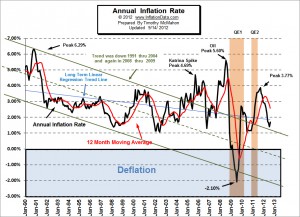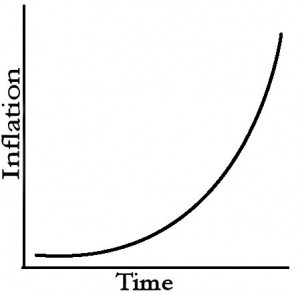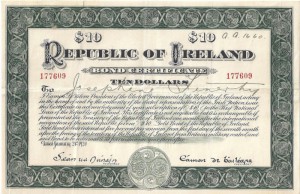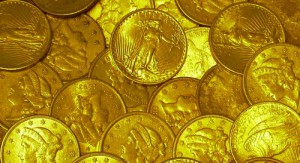Speculation Mounts Over RBA October Meeting As the RBA heads towards it October meeting, there are a number of important issues on the agenda. The price of iron ore which was one of the major topics of the September meeting have now seen a 26% resurgence in price and the world’s fourth biggest exporter of iron ore, Fortescu Metals, has announced that its US$4.5-billion debt deal will now enable it to refinance any outstanding deals. The central banks in Europe and the United States have announced their intentions to fight off inflation and stimulate asset prices by printing unlimited money while China will be contributing a $150-billion package to the mix. Unemployment Despite … [Read more...]
What is “Leverage”?
Leverage is... The basic definition of "Leverage"is the mechanical advantage available from using a "lever"this idea has been expanded to apply to other types of advantage such as money, finance and even positional advantage. The Classic Example of Leverage... As a child I would often go to the playground and play on the "See-Saw" aka. "Teeter-Totter" it was a board fixed in the middle that allowed two kids (one on each end) to ride up and down based on their weights being equally balanced. The device didn't work all that great if one kid was considerably larger than the other one. The heavier kid would crash to the ground while the lighter kid would be launched into the air. This … [Read more...]
The Effects of Quantitative Easing
Quantitative Easing Effects- You have probably heard that the massive inflation of the money supply through Quantitative Easing is going to result in hyperinflation or at least massive inflation. But so far that hasn't happened. As a matter of fact since the end of QE2 in June of 2011 inflation rates have fallen from 3.63% in July 2011 to 1.41% in July 2012. How is that possible? The first reason is that the FED is playing a game with the banks. The FED loans money to the Banks at nearly Zero percent interest the Banks turn around and loan the money to the Government at 3% interest to finance the deficit. This gives the banks plenty of profit to shore up their sagging balance sheets. But … [Read more...]
Aussie Costs of Spending, Living and Credit
Aussie Credit Card Reforms The recent credit card reforms, enforced starting July 1, have stirred up quite the debate on the matter, with analysts and experts rushing to argue whether or not the reforms are actually beneficial for the end-user. However, the habits, debts and expenditure afforded by that very end-user are causing an extended discussion of their own. Where does the truth lie? Is Australia really sinking under credit card debt? Are the new reforms going to spell a slow, yet certain and agonizing death for plastic? Or is the state of the nation’s money far more positive than we imagine—and simply suffering at the hands of global recession-induced cries of panic? … [Read more...]
Inflation Definitions
Inflation Adjusted Prices What is the inflation adjusted price of common commodities? Historical Oil Prices Chart - This Chart compares Monthly Average Oil Prices with their Inflation Adjusted Oil Price. Historical Crude Oil Prices (Table) - The first table shows Annual Average Crude Oil Prices from 1946 to the present. Prices are adjusted for Inflation using the Consumer Price Index (CPI-U) as presented by the Bureau of Labor Statistics Inflation Adjusted Electricity Prices - Residential electricity prices in the U.S. have risen from an average of 7.83 cents per kilowatthour in 1990 to an average of 11.44 cents per kwh in 2010. This is a 46% increase in 20 years and sounds like a … [Read more...]
What is Hyperinflation?
Hyperinflation Hyperinflation is an extremely rapid period of inflation, usually caused by a rapid increase in the money supply. Usually due to unrestrained printing of fiat currency. See: How Does Gold Fare During Hyperinflation? Unfortunately, there is no exact percentage where inflation turns from "ordinary Inflation" to "Hyperinflation". So you can't say for instance that 9.9% inflation is ordinary but 10% inflation is hyperinflation. Typically in hyperinflation it just gets progressively worse. Every month the inflation rate just gets higher and higher until the curve goes hyperbolic. Classic Hyperinflation Classic examples are the Hyperinflation of Weimar Germany and the more … [Read more...]
What is the Fiscal Cliff and How is it Affecting the Economy
The fiscal cliff that is the current hot topic in the news is a combination of automatic spending cuts and tax hikes that are scheduled to go into effect at the end of 2012 and the beginning of 2013. The spending cuts were triggered when congress failed to reach a deficit reduction agreement during last years debt ceiling debate. The tax increases are also automatic because Congress failed to make the "Bush Tax Cuts" permanent opting instead for a more politically expedient temporary tax reduction. In other words, they "kicked the can down the road" and it landed at the end of 2012. Perhaps they were hoping the Mayans were right and the world would end before they had to deal with the … [Read more...]
Impact of Inflation on Bonds Part 1
Impact of Inflation on Bonds Bonds are often considered a risk-free (or nearly risk-free) investment suitable for "widows and orphans". While they are generally safe, they have several weaknesses in the modern marketplace, inflation, rising interest rates and default risk. Before buying a bond, make sure you understand how bonds work and how inflation can have an effect on bonds. The Nature of Inflation Inflation is often described as the general rise of prices in the economy. However, the increase in prices is merely the effect, called "price inflation." Monetary inflation, which is the expansion of credit in the financial markets, is what often (but not always) drives price inflation. … [Read more...]
Why Buy Gold?
Gold has been one of the best investments over the last decade going from a low of $252 to a high of $1889. If you're looking for a way to protect against the effects of inflation, currency collapse or economic instability, here are a few things to consider about why gold should be in your portfolio. Return to the Gold Standard If you've been paying attention to what is going on in the world these days, you know that the financial markets have been in turmoil. Much of this relates to the basic underpinnings of the economic system. In the United States, the Federal Reserve is in charge of the money supply and interest rates. Nothing is backing the paper money that is printed, other than the … [Read more...]
What is Quantitative Easing?
Is Quantitative Easing Money Printing? Quantitative Easing is often referred to as "money printing" or a way for the government to increase the money supply. According to Wikipedia, quantitative easing is different from the typical method whereby governments buy treasury debt to increase the money supply. In QE1 when the market was panicked, and banks didn't want to buy government bonds, the central bank implemented "quantitative easing" by purchasing relatively worthless financial assets (like mortgage backed securities) from banks and giving them new electronically created money. So this is straight forward money printing compared to the more round about traditional method. Thus … [Read more...]









